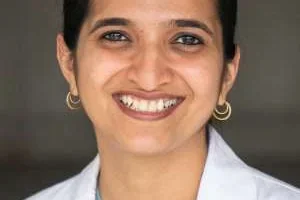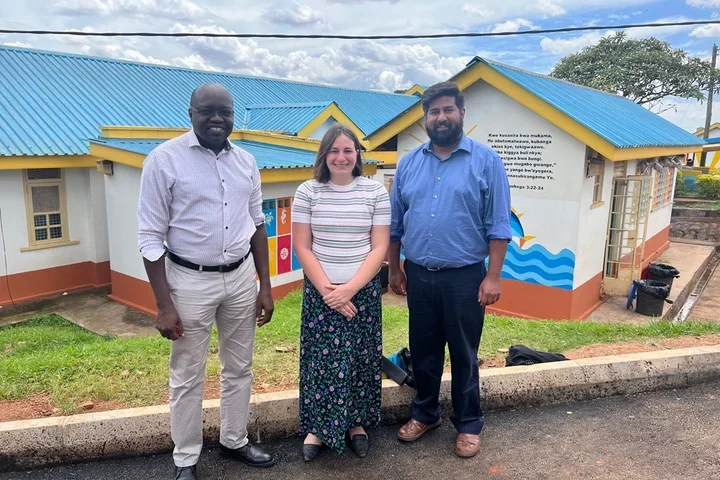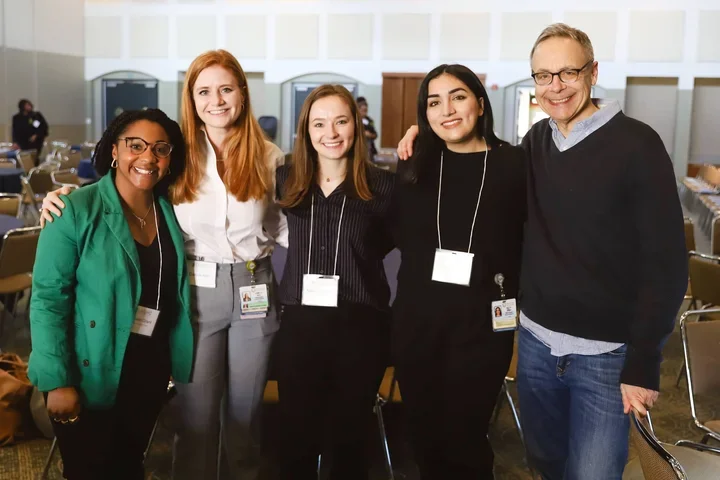Welcoming the New GHP Director

The Global Health Program (GHP) is thrilled to share a conversation with Dr. Sadath Sayeed, who will begin his new role as the Director for GHP on January 1, 2024. Following leadership roles in global health at Harvard Medical School’s Department of Global Health and Social Medicine and at Seed Global Health, Dr. Sayeed will oversee the global health education and research activities at DGSOM. Dr. Sayeed will also engage in clinical care at Olive View-UCLA Medical Center in the Division of Neonatology and Department of Pediatrics.
GHP reached out to Dr. Sayeed to get a preview of his vision for GHP before he begins his new role.
GHP: We’re excited that you have decided to lead our program! What about the GHP drew you to this role?
Dr. Sayeed: So many amazing draws. Let me just name a few and start with the most important: the people. I have been so impressed with all of the students, staff, and faculty at DGSOM that I’ve been fortunate to meet so far. Every single person with whom I’ve interacted has been gracious, curious, and sincerely motivated to help to expand and advance GHP’s mission in a conscientious manner. Cultivating our collective energy in meaningful and tangible ways is key to the sometimes frustrating and challenging work of delivering healthcare more equitably throughout the world. I have also been so impressed with the depth of commitment from DSGOM and UCLA Health leadership to GHP. Without such a commitment, it’s hard to sustain excellent existing educational, research, and service paradigms, let alone build new lanes of engagement in what is a complicated practice space. Lastly, I love that the DGSOM is not shy about publicly celebrating its progressive values as symbolized in our cultural North Star: “Do What’s Right, Make Things Better, and Be Kind.” To me, the work of advancing healthcare equity anywhere and everywhere is just that – doing what’s right, making things better, and being kind each and every step of the way.
GHP: In your article “Institutionalising global health: a call for ethical reflection,” you invite readers to reflect on how global health, as it is practiced today, tends to prioritize the agendas and interests of individuals and institutions with abundant resources. As someone who has worked in global health education, as well as in the non-profit space, what makes universities interesting places for working towards a more ethical and equitable model of global health engagement?
Dr. Sayeed: We know that reducing entrenched healthcare inequities in communities that suffer from substantial disadvantage presents a complex set of challenges anywhere. When a pregnant woman succumbs to a post-partum hemorrhage in Mangochi, it is rarely just a problem of a nurse or doctor getting her a blood transfusion in a timely manner. It is also a problem of infrastructure, transportation, and supply chains; it is a problem of macro-level financing mechanisms that cripple the government of Malawi’s ability to adequately fund its healthcare system’s needed material and human resources; it is a problem of discounting sociological context and lived experiences within rural communities that provoke distrust in a chronically under-supported health care system and its impact on healthcare-seeking behaviors. It is these and many more systematic and structural problems that do not lend themselves to neat and tidy technical solutions. Put bluntly, these are not problems a typically US-trained doctor, nurse, or midwife can fix simply fix by showing up with an abundance of good intentions. Universities are uniquely positioned to interrogate and explain this complexity from multi-disciplinary angles and that is exactly what we need to do and teach the next generation of global health practitioners. We need to ensure that that they are far better pragmatically equipped to solve thorny, complicated problems. Anyone seriously interested in health equity work needs a broad array of skills – from learning effective advocacy and systems management to implementing quality improvement and understanding good governance to developing context sensitive monitoring, learning and evaluation tools – to name a few. A university with the breadth of cross-disciplinary expertise that UCLA boasts is an ideal place for us to break away from our silos, come together and learn from one another as a motivated collective. At the same time, we need to be honest about what an American academic institution is constituted to reasonably deliver – we need recognize how traditional incentive structures encourage and reward certain sets of activities. But we also need to nudge ourselves in new equity-leaning directions.
GHP: Could you talk about your short and long-term vision for the GHP as you take on this new role?
Dr. Sayeed: I am going to ask for forgiveness and reject the premise of this question. This is not about my vision. It is about ours. GHP has a terrific educational and research footprint that we can and will build off of. I hope to inform our vision based on two decades of critically reflecting on my own experience working in a variety of different capacities, as an educator, as a care provider, as an investigator, as a program builder, and as an advocate. Of course, I have a number of specific proposals which I look forward to sharing with our community – but anything I or any of us proposes needs to have authentic buy in from our community. The theoretical rationale, operational logic, pragmatic value, expected impact, and moral importance ought to be evident. I hope and expect to cultivate deeper sensitivity and attention to ensuring all of our current and future programmatic outputs are leaning in to better balance the equity equation. There are a number of ways we can demonstrably work toward that ambition, but it takes effort and sometimes stepping outside of our comfort zones. It’s a profound privilege to be invited into this leadership role at DGSOM, and I’ll end by stating that my first “job” is to be an excellent listener.
GHP: Thank you so much, Dr. Sayeed! We are excited to have you as a leader and colleague, and we are also very grateful for Dr. Cecily Gallup’s leadership these past 18 months as Special Advisor to the Interim Director.



